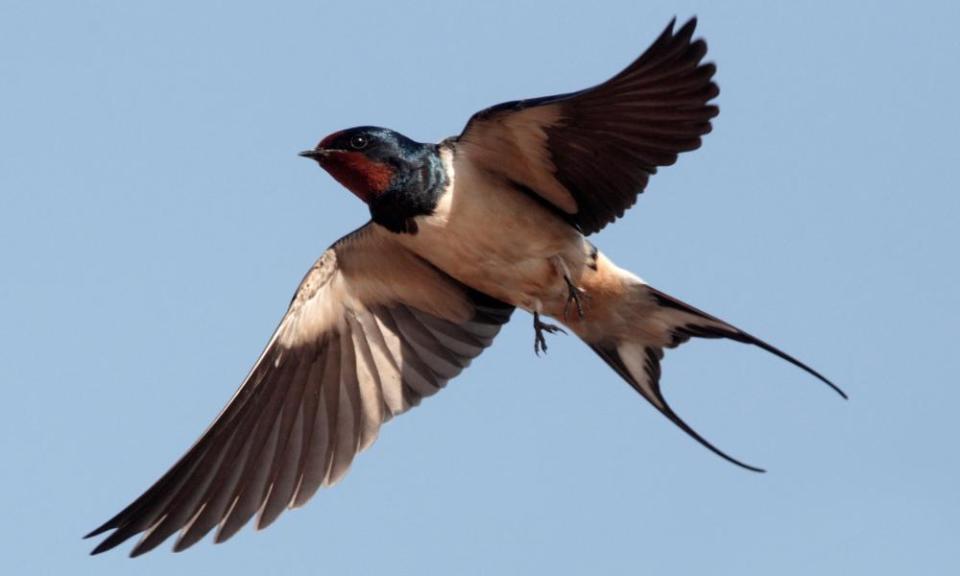Tim Dowling: I’ve escaped the city. Now what do I do?

I am in the Lake District. It’s the first time I’ve left London in months, and I’m one of a line of six people, old friends, plus three dogs on short leads, walking along a narrow lane bordered by high hedges. It would be fair to say I am not used to this.
At the bottom of the hill, we come across a large lorry plugging the road like a stopper at a three-way intersection, unable to proceed. Cars are backed up along the other two roads as far as one can see. The lorry driver faces a reverse journey of about a mile before he can turn around, and his first stab at it does not inspire optimism. We press ourselves into the hedge as he crawls past us, directed by a volunteer. After only a few feet he has to brake when a new car comes up behind him.
We join the other walkers threading through the mess like ants, and head up the hill until we have passed the last car in the queue: windows down, engine off, passengers staring straight ahead, stony-faced.
“On a different day, I would have stayed to watch all that,” I say.
“I’m sure you would,” my wife says. And it’s true – I’m eager to know how these things get resolved, especially in different regions.
“Maybe it will still be going on when we come back,” I say.
We leave the road and climb through fields, along paths bordered by stone walls. The others point out wildflowers, naming each new example.
“I know flowers,” I say.
“You really don’t know flowers,” my wife says.
“Vetch,” I say.
“There is a flower called vetch,” she says. “But you don’t know what it looks like.”
“Vetch,” I say, pointing.
“Those are nettles,” she says.
It is my intention to keep pointing and saying “vetch” until I accidentally happen upon some, but everyone gets irritated by it surprisingly quickly. As I say, I’m not used to this. Somewhere below us I hear the distant beep of a reversing lorry, and my heart travels back there.
The others are identifying birds, by sight and by song.
“Is that a swift or a swallow?” my wife says, shading her eyes.
“Their tails are different,” our friend says. “But I’m never sure which is which.”
“I know birds,” I say, looking up.
“He doesn’t,” my wife says. “He calls starlings supermarket birds.”
“It’s their habitat,” I say. “They live under the trolleys.”
“What?” says our friend.
“That, for example, is not a supermarket bird,” I say. “That’s definitely a swallow.”
“He has no idea what he’s talking about,” my wife says.
“If it’s sitting down, then it’s a swallow,” I say. “Swifts can’t sit down.”
“Is that true?” our friend says. “I know they rarely land, but… ”
“Swifts can’t land,” I say. “They don’t actually have any feet.”
Related: Tim Dowling: the oldest one is out tonight. I wasn’t expecting this
The combination of walking uphill and being social is exhausting. I allow myself to drift to the middle of the procession where I have no companion: the odd one out, head down, covering ground. It occurs to me that there used to be more to conversation than just being irritating, but I can’t quite remember how it all worked. I think: stick to what you know – birds and flowers.
At the top, we come to a huge reservoir where we stop to eat lunch. The sky is bright blue and the wind is light, and everything looks like something I have not seen for a long time: bare green hills scored with broken stone walls and dotted with sheep; distant figures crossing the ribs of the valley along little white paths. Even before the pandemic, I never got up this way much.
It takes us about an hour to make our way down by a different route. As we reach the car park where walkers gather to meet one another, I instinctively touch my back pocket to make sure I have a mask in it.
We proceed single file along the now quiet road where the lorry was stuck. I will never know how it all worked out. My wife calls my name, and I turn and walk back to where she is standing with the dog.
“There,” she says, pointing into the hedge. “That’s vetch.”

